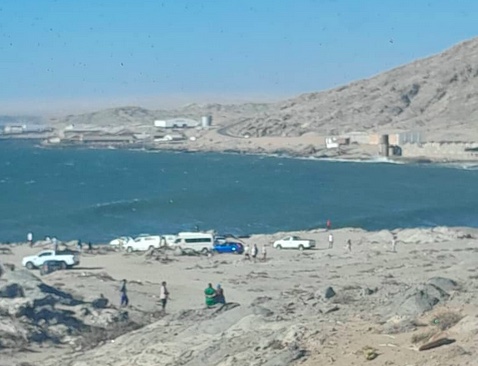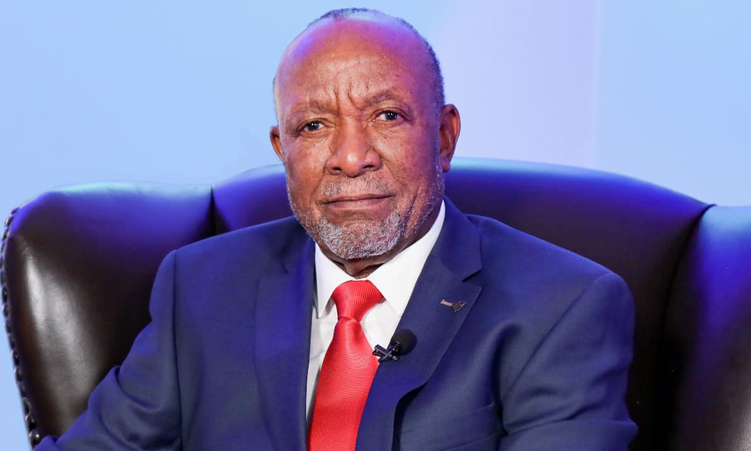DYLAN MUKOROLI and FILLEMON NGHISHEKWA AFRICA IS looking to get its share of the global free trade arena with the introduction of the African continental free trade agreement (AfCFTA), which will give member states easier access to the African market of more than 1,2 billion people and a gross domestic product of US$2,5 trillion.
The free trade agreement is expected to increase intra-Africa trade and seeks to create a single continental market for goods and services, with free movement of businesses and investments. The agreement is an important stepping stone towards a continental customs union, pan-continental socio-economic integration, and a more economically self-sufficient Africa.
Unquestionably, the AfCFTA has immense potential to facilitate a boisterous economic growth cycle for the continent.
However, policymakers must take into full account the long-term distributional consequences of the AfCFTA, while navigating the long globally influenced road to implementation so as not to fall into inequality traps, leaving some economies worse-off and blocked out of already existing global value chains.
So how does free trade affect us? Free trade is competition; producers understand the value of their output better in the international market; it will also create incentives for efficient production in home countries and better international relations with the trade partners.
Trade obligations require amicable relations with other countries, and fair and free trade might just hold the key to peace on the continent. The above statement leads us to the understanding that the AfCFTA can act as a catalyst to spur economic and broad social growth. However, in order to consolidate this understanding, one would need more tangibility and clarity into the management thereof.
Opening up an economy allows flow of capital, information technology and exchange of ideas, which will lead to innovation and corrections. As long as there are people willing to work and earn profits, free trade will never lead to complacency in the home population and over-dependence on imports.
In light of recent trends in trade throughout the world, by reducing imports and increasing exports the global economy is creating a tricky situation for itself in that there are now many countries that are trying to boost their economies on the back of exports, but when other countries are reducing imports, there is an increase in supply, but a falling demand.
This brings to light some of the risks associated with free trade and how if not properly managed can cause shock waves unique to every country and can thus create a negative paper trail for the deal.
The pros and cons of free trade are mostly the same as with most of the aspects of capitalism. Free trade will benefit both the seller and the buyer since the comparative advantages of countries will be employed and the common wealth between the trading countries will increase.
However, the cons are as always the distribution of wealth (between the citizens in one country) which is already a major issue for Africa, and the negative external effects on the environment. In addition, if the bargaining power between the trading partners is unevenly distributed, the chance of exploitation is increased for the selling country.
This is what we have seen happening between the developed and less developed countries, where the buyer pays a low price to the seller because of the buyer’s stronger position (a take it or leave it deal).
The battle ground for the agreement lies with its ability or inability to protect small economies and small & medium enterprises (SMEs). So far, it lies more towards an inability than an ability. The free trade deal must come up with ethnographic and tangible strategies to protect small economies and SMEs.
Africa’s heavyweights such as Nigeria, South Africa and Egypt will by virtue of their GDP dominate the free trade scene as they have both the manufacturing muscle and capital. How will the free trade agreement seek to protect smaller economies such as Namibia for example with very little to no manufacturing muscle.
This is where fair trade and sound policy making comes in. Overall – free trade in itself is beneficial for all as long as there is proper implementation and governmental control. Left to itself it can be destructive. For now, only time will tell if the AfCFTA will be a success or not.
* Dylan Mukoroli is a managing partner at Social Chapter Consulting. He can be reached at ddamice@gmail.com.
* Fillemon Nghishekwa is the technical adviser to Social Chapter Consulting. He can be reached at fillemonn64@gmail.com
Stay informed with The Namibian – your source for credible journalism. Get in-depth reporting and opinions for
only N$85 a month. Invest in journalism, invest in democracy –
Subscribe Now!







